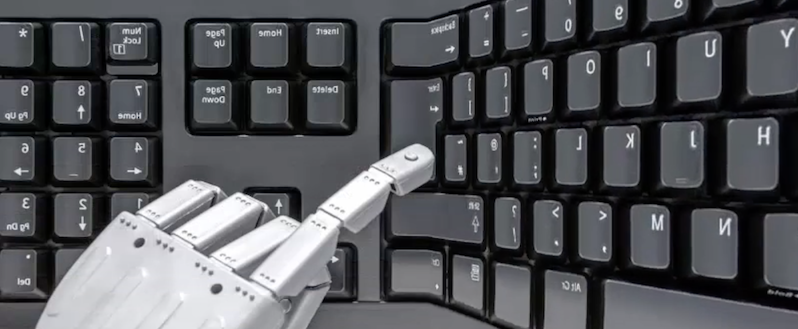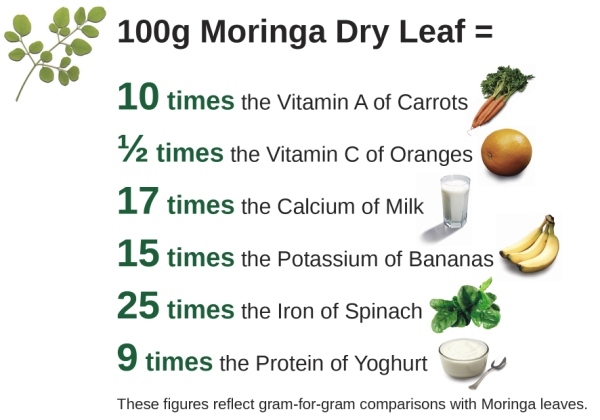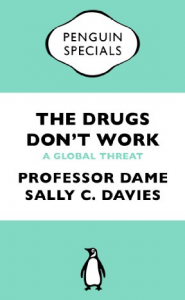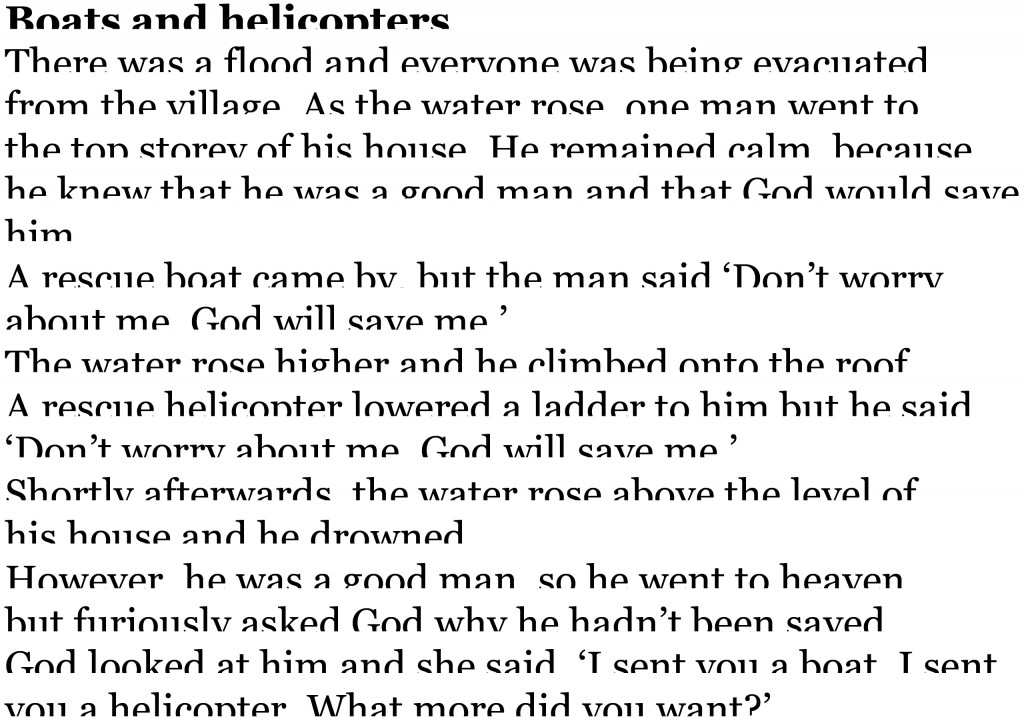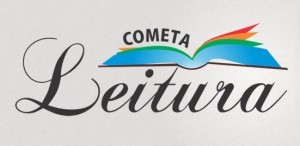FingerReader is a wearable reading device that will read any text out loud for you, slowly but surly. Finger Reader is intended for visually impaired people. According to MIT Media Lab which developed Finger Reader, “only 7% of all books are available in Braille, audio and large print. In a 2009 survey, nearly three quarters (74%, 72%) of blind and partially sighted people reported that they could not read the information provided by their hospital or their GP. In addition, things like letters, menus, reports, magazines, rarely exist in Braille.” Read more about Finger Reader and watch a video of Finger Reader in action.
Category Archives: #1 Blog On Speed Reading & PhotoReading, Summaries of Books, Good Books to Speed-Read, News, Research On Speed Reading
Speed reading blog by Jan Cisek and Susan Norman from London UK. Summaries of books and good books to speed read. News, blogs and latest research on speed reading and photoreading.
How long does it take to read classic novels?
How long does it take to read any of these classic novels?
Using the word count and the average reading speed the calculation is very easy to do. For example, War and Peace with 587,287 words takes about 32.63 hours to read.
Research and references on speed reading, reading, priming and memory
Research and references on speed reading, reading, priming and memory (a selection)
One study on skimming found that skimming a text before going on to reading it, improved comprehension in the majority of cases.
Word recognition is one of the major slowing aspects for most readers. Research suggests that subvocalisation that nemesis of speed readers is slower on unfamiliar words. If you want to speed up reading, build your vocabulary and learn to recognize words faster and naturally you will improve your reading speed. If English is not your first language or if you want to learn another language or anything else try an intelligent flashcards system called Anki which is useful for learning new words, new terms and anything else.
NASA has built subvocalisation detection systems to pick up subvocalisation (the faint nerve impulses that are sent to the muscles when we read), using them to browse the web or potentially even control a spacecraft.
Exercises for eyes for optimal speed reading
Exercises for eyes for optimal speed reading
It’s harder to read when your eyes are tired. Keep your eyes in an optimal state for reading by doing eye exercises from time to time:
Change focus / 20-20-20
Look up from what you’re reading and alternate a few times between focusing on something in the distance and on something up close. This is called 20-20-20. Your eyes need regular breaks to prevent strain. Every 20 minutes make sure that you take 20-second break from what you’re doing to focus on something 20 feet or more away.
Palm your eyes
Briskly rub the palms of your hands together to warm them slightly. Place the palms over your closed eyes and gently massage the bony areas around the eyes (not directly onto the eyeballs) with the outsides of your palms for about 30 seconds. Open your eyes under your hands, and create a seal with your palms so that you’re looking at complete darkness for a moment or two.
Eye writing
Writing with your eyes, you will force them to move out of their normal ways, giving them more flexibility and range of motion, and strengthening the ocular muscles. Look at a wall or space in front of you and imagine in your mind writing your name or any word using just your eyes. Use your eyes only to write your name or any word – do not move your head – moving them like a pen or paintbrush. Write in capital letters, small letters and in italics.
Stress – learning and memory killer
Watch this National Geographic and Stanford University documentary on how stress kills your brain cells and affects hippocampus which is responsible for your learning and memory (from 25 min of the documentary). “Stress is not a state of mind… it’s measurable and dangerous, and humans can’t seem to find their off-switch.” says author and award-winning neurobiologist Robert Sapolsky in the documentary Stress: Portrait of a Killer.
Coffee improves memory
Coffee triggers a mechanism in your brain that releases a growth factor called Brain-Derived Neurotrophic Factor (BDNF) which also activates brain stem cells to convert into new neurons in your brain, which can have definitive benefits for your brain function. Research conducted at Johns Hopkins University found that 200 milligram (mg) of caffeine enhanced participants’ memory for up to 24 hours. Natural blend of polyphenol antioxidants (including chlorogenic acids), bioflavonoids, vitamins and minerals in coffee beans all work together to help neutralize the harsher effects of the caffeine.
Read more about the benefits of drinking coffee
Top Tips for Digital and Online Reading (ebooks, Kindle, pdfs)
Top Tips for Digital and Online Reading (ebooks, Kindle, pdfs)
Digital reading is a relatively new – and growing – phenomenon, and it merits specific consideration.
All 37 of the spd rdng techniques apply equally to paper-based texts and digital reading (including online reading). Some need slight modifications, some are easier digitally (such as scrolling quickly when downloading or previewing) and some of the things that we take for granted on our computers, reading devices and mobile phones (such as searching for information, not feeling obliged to read every word, stopping once we’ve found the information we need, etc) are strategies which can profitably feed back into our paper-based reading.
How sleep helps with memory formation and learning
There is a lot of research on the role of sleep and memory formation and learning. But only recently scientists discovered how it happens. During sleep your brain forms new synapses and nurons that help with learning and memory. “…sleep is important to the process of forming long term memory,” says Wen-Biao Gan, a neuroscientist and physiologist at New York University who discovered that learning, or making long term memories, is a two part process in which sleep plays an important role. Sleep is also an essential aspect of health. Not enough of sleep can lead to all kinds of health problems such as diabetes, heart problems, cancer,obesity and so on. Top tips for getting good night’s sleep include sleeping in total darkness and avoiding electromagnetic pollution which will disturb melatonin production which is critical for good night’s sleep. Read top tips for good sleep
Watch this video about the importance of optimising your sleep below. Research shows that most people need eight hours of sleep – ideally in total darkness (one photon of light can disturb melatonin production which is responsible for good sleep – make sure that you have low electromagnetic pollution levels in your bedroom – light falls into an electromagnetic spectrum and our bodies perceive electro-smog as light – so switch off your wifi router for the nigh – read top tips on how to avoid and minimise electro-smog).
How computers are writing books and articles (you might be reading right now…). Essay, PhDs Writing and Composting Algorithms
Professions to be automated: education, writing and military
According to WIRED magazine, three professions might be extinct in the near future and replaced by smart software or machine learning algorithms doing their work in a fraction of time and at almost no cost. The three professional categories due to be automated are: education, writing and military. The world without work is a real possibility.
Essay writing, PhDs writing and composting algorithms
Philip M Parker, whose company ICON Group International has published over 1m algorithmically generated books in a very short time breaking all the Guinness book records. It usually takes his software about 20 minutes to write, check and publish the ebook online. $0.20 to $0.50 is the production cost which is the cost of electricity and hardware, and some of his books sell for hundreds of dollars. Any material that has a formulaic structure (including novels because all of them follow six themes or basic plots) can be written by an automated system, essay writing and composting algorithms.
Most of his books are for niche subjects within larger categories such as health for example, but his team has taken the challenge of writing software to produce novels. His essay composting algorithms software is not limited to written works. A PhD can be written in 20 minutes too – watch his TED talk below about essay writing and composting algorithms.
Automated journalism or essay writing and composting algorithms are a fact. Many articles you’re reading (especially sports reviews) are written by machines. Software such as Wordsmith can generate articles and content with very little input from humans.
To Remember – Write it Down by Hand
Old-fashioned note taking by hand can enhance your memory. Studies show that people who take notes in shorthand not only comprehend information better but also remember for longer. Although we type more than write by hand, it makes sense since we all learnt to write first before typing and this is our primarily mode of inputing and coding information. (Although, in some schools in America they started to experiment with teaching kids to type first.) Also, in English we say ‘learn by heart’ and handwriting is more analogue way on coding information as opposed to typing which is more digital and cerebral. Read top tips for boosting your memory and drinking moringa tree tea can enhance your memory too. Read how to hold your pen ergonomically
Other studies suggest that people who write down their goals by hand are more likely to achieve them.
23 April – World Book Day
Celebrate World Book Day – Read a book today
World Book Day or World Book and Copyright Day (also known as International Day of the Book or World Book Days) is a yearly event on 23 April, organized by UNESCO to promote reading, publishing and copyright. In the United Kingdom, the day is instead recognised on the first Thursday in March. World Book Day was celebrated for the first time on 23 April 1995. The connection between 23 April and books was first made in 1923 by booksellers in Spain as a way to honour the author Miguel de Cervantes who died on that day. There is also Word Book Night to follow the day, if you like.
Continue reading
Double your reading speed, fast – at the NLP Conference 21-23 November 2014, London UK
We’re giving a short presentation on how to double your reading speed fast at the NLP Conference in London on Saturday 22nd November 2014 | 13.30 – 14.15
NLP is the best way to get into personal development and the NLP conference is the best first step.
More info about the 21-23 November 2014 NLP conference London UK
Venue: Holiday Inn London Bloomsbury, Coram Street, London WC1N 1HT
Hibiscus Extract Helps with Memory and Concentration
Research suggests that hibiscus extract is a cognitive enhancer which supports memory and concentration.
How to boost your memory – top 9 lifestyle tips for improving your memory
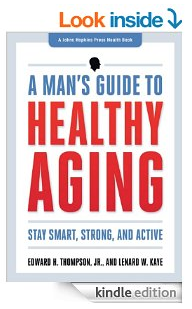 Top 9 lifestyle tips for improving your memory (according to A Man’s Guide to Healthy Aging). By the way, don’t worry if you momentarily forget your ATM pin number – you really need to start to worry about your memory if you forget what the ATM is used for.
Top 9 lifestyle tips for improving your memory (according to A Man’s Guide to Healthy Aging). By the way, don’t worry if you momentarily forget your ATM pin number – you really need to start to worry about your memory if you forget what the ATM is used for.
1) Physical (daily) exercise is important and will enhance your memory and decrease the risk of dementia.
2) Cognitive exercises such as doing jigsaw puzzles, puzzles, games and thinking challenges and whenever the brain is challenged will bolster memory functioning and builds reserves.
3) Antioxidants and omega-3 fatty acids – include these in your diet and you will reduce your risk of cognitive decline. Top antioxidant super-foods are: chaga mushrooms, moringa tree, green tea, berries, broccoli, garlic, coco and other antioxidants. Read more about how antioxidants work
4) Have a good night sleep.
Lots of research suggest that sleep is critical for boosting your memory because sleep-loss impairs memory consolidation. The more you learn the more you need to sleep. For examples, babies sleep so much because everything is new to them and they need to process that information during their sleep. 33 top tips on good sleep
Continue reading
Moringa Tree – The Miracle Tree & Smart Food Tonic to Boost your Energy and Memory
Moringa tree – perfect nutrition for everyone
Meet the moring tree, the most important tree on this planet with the most amazing properties – that ancient medicine claims that prevenst 300 diseases. New evidence and preliminary studies on moringa oleifera suggest that moringa leaves could be a miracle cure for malnutrition and a host of many illnesses (cancer, diabetes, liver and kidney problems, ulcers, anemia, high blood pressure, stress, and much more). Moringa tree contains a perfect combination of nutrients, vitamins, minerals and proteins (at least 90 nutrients, 20 amino acids, 46 anti-oxidants (which boost memory – but the highest content of antioxidants have chaga mushrooms) and 36 anti-inflammatory) for everyone, especially for the ones who need extra energy boost and are leading busy lives.
The only UK CPD Accredited Speed Reading Course
We are delighted to announce that our spd rdng (speed reading) courses are now CPD accredited. The two-day speed reading course gives you 14 hours of CPD points. One-day speed reading courses depend on the number of teaching hours.
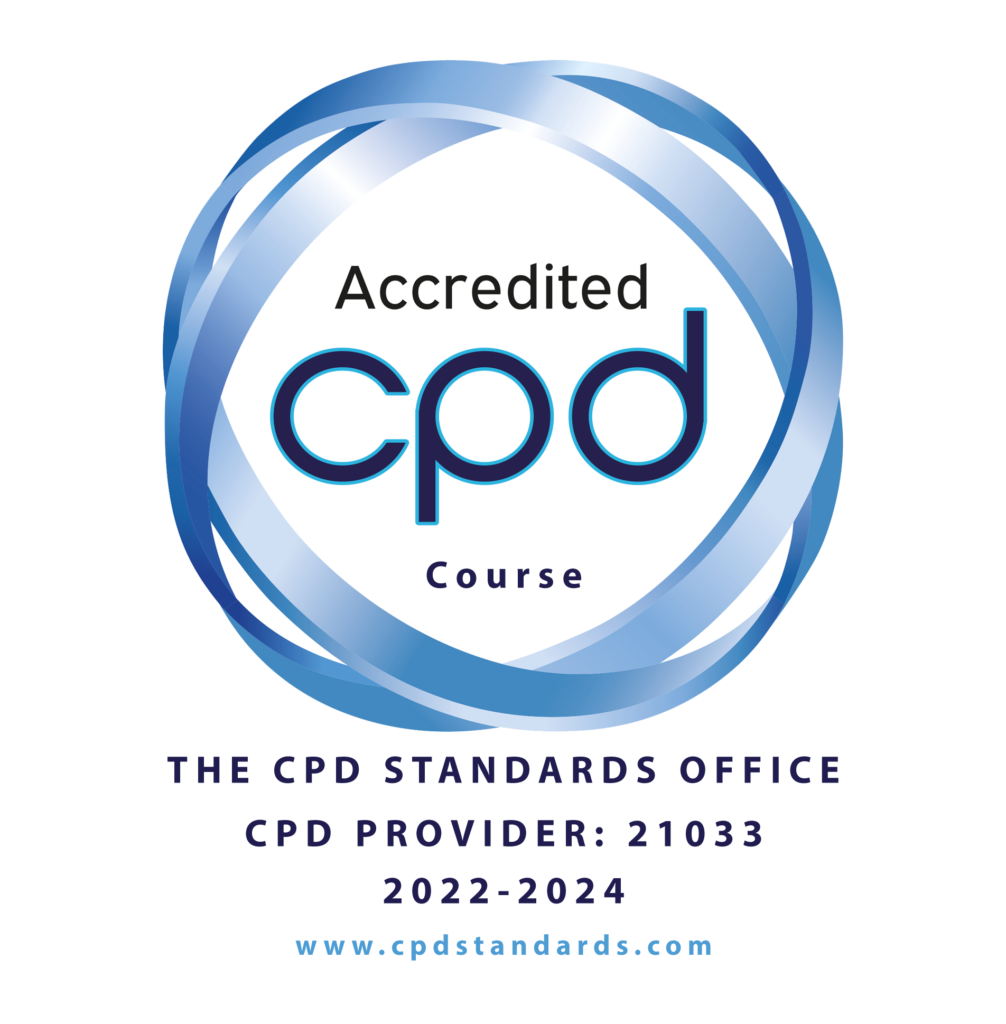
CPD for Speed Reading
Stress is good for you. If you think that way. Here’s the science why?
We were led to believe that stress is bad for us and can affect our performance. And it is, when you think that way. The new science reveals that stress is a natural response to challenge. The way we think and act about stress can build our stress resilience.
Watch this enlightening TED talk about how to deal with stress that can help you understand and appreciate stress more and live longer (if not save your life).
IBM’s Watson will read for you… million pages
If you ask a human and a computer both to read a single page of natural language, the computer wouldn’t have a chance. But if we ask both a human and a computer to read 200 million pages, a human wouldn’t have a chance.
The most expensive book on the planet at the moment: Bay Psalm Book
Over 14m USD was paid for the most expensive book at the moment (at New York’s Sotheby’s) which is Bay Psalm Book which was published in 1640. Only 1700 copies of the psalm book were published by settlers in Cambridge, Massachusetts and currently there are only 11 copies in existence. The book has 300 pages. Only manuscripts and hand written books were more expensive. In 1994, Leicester Codex (writings and notes made by Leonarda Da Vinci in XVI century) fetched 30.8m USD.

Coconut Oil – an Ideal Brain Food
There are only two types of fuel your body can convert into energy: carbs/sugar, or fat. Again, ketones are what your body produces when it converts fat (as opposed to glucose) into energy. And a primary source of ketone bodies are the medium-chain triglycerides (MCT) found in coconut oil. In fact, coconut oil contains about 66 percent MCTs. It’s a super-brain food. Other super-brain foods
While your brain is quite happy running on glucose, there’s evidence suggesting that ketone bodies may actually help restore and renew neurons and nerve function in your brain, even after damage has set in (new research suggests that eating coconut oil can help with Alzheimer’s disease). Interestingly, the mechanism of this MCT-ketone metabolism appears to be that your body treats MCTs as a carbohydrate and not a fat. This allows the ketone energy to hit your bloodstream without the normal insulin spike associated with carbohydrates entering your bloodstream. So in effect, coconut oil is a fat that acts like a carbohydrate when it comes to brain fuel.
How much coconut oil might you need? The recommendation is to start with one teaspoon, taken with food in the mornings. Gradually add more coconut oil every few days until you are able to tolerate about four tablespoons. It’s best to take it with food, to avoid upsetting your stomach. Read more about the benefits of coconut oil
20 different ways to purchase ebooks, digital comics and etextbooks online
Kindle has probably the biggest selection of ebooks at the moment but there are at least 20 other ways to purchase ebooks, digital comics and etextbooks online
Summary of The Drugs Don’t Work by Professor Dame Sally Davies: The Drugs Don’t Work!
Some books are summarised with the title as this publication The Drugs Don’t Work by Professor Dame Sally Davies who is a chief medical adviser to the UK government on health issues. Her findings are very simple: “We are losing the battle against infections diseases. Bacteria are fighting back and are becoming resistant to modern medicine. In short, the drugs don’t work.” Hence the title “The Drugs Don’t Work.” Her best and most important advice is to wash your hands properly. (Her second tip is to stop demanding antimicrobial medicines when we have a viral infection and to raise awareness of the threat of antimicrobial resistance). Read more about the importance of reading summaries
A History of Speed Reading and Spd Rdng
Set your purpose for speed reading this article
Before you start reading the article, think what sort of information you would expect to find in this article. Then spend two minutes previewing the article and setting your purpose. After getting into a good state, set your timer for 20 minutes and jot down information from the article which fulfils your purpose.
Sample purposes
Choose only one, or something better of your own.
1 Write a timeline of 6 key developments in spd rdng
2 Find 6 spd rdng techniques I will definitely use
3 Identify 6 spd rdng techniques and the names (and approximate dates) of the 6 different people who originally developed them
A History of Speed Reading and Spd Rdng (DOWNLOAD the pdf of this article)
Ever since people have been reading, many of them have been trying to read faster and more effectively. Oddly, though, apart from some early exploration by the US Air Force who held the first formal speed reading course at Syracuse University in 1925, there has been little or no support from educational establishments or governments. Even though you would think there were academic plaudits or increased educational attainments to be gained by the first organization or country to implement a reading programme which could take students beyond the basics, all advances seem to have been made by committed individuals who have remained outside the formal education system, and that is still the situation today.
The world’s largest collection of photos of the coolest and most interesting bookshelves
Starting with this cool Chuck shelves: the six very flexible plywood planks (4mm thick) that can bend around your possessions – ideally books (to the tune of €850:).
And follow this link to see the largest collection of the best and most interesting bookshelves in the world. If you’re a book-lover it’s a feast for the eye and the mind. This one below is my favourite, since I only own ebooks now (read how I digitised all my library).
Speed Reading Courses in Dublin, Ireland
We’re delighted to welcome Sara Houbabi to spd rdng family. She is the first spd rdng trainer to trained and accredited by us and she’s now running spd rdng / speed reading courses in Dublin, Ireland through her company Quantum Leaps.
French translation of The Speed Reading Bible is now available on Kindle – La Bible de la Lecture Rapide
Spd Rdng – The Speed Reading Bible translated into French now and available on Kindle
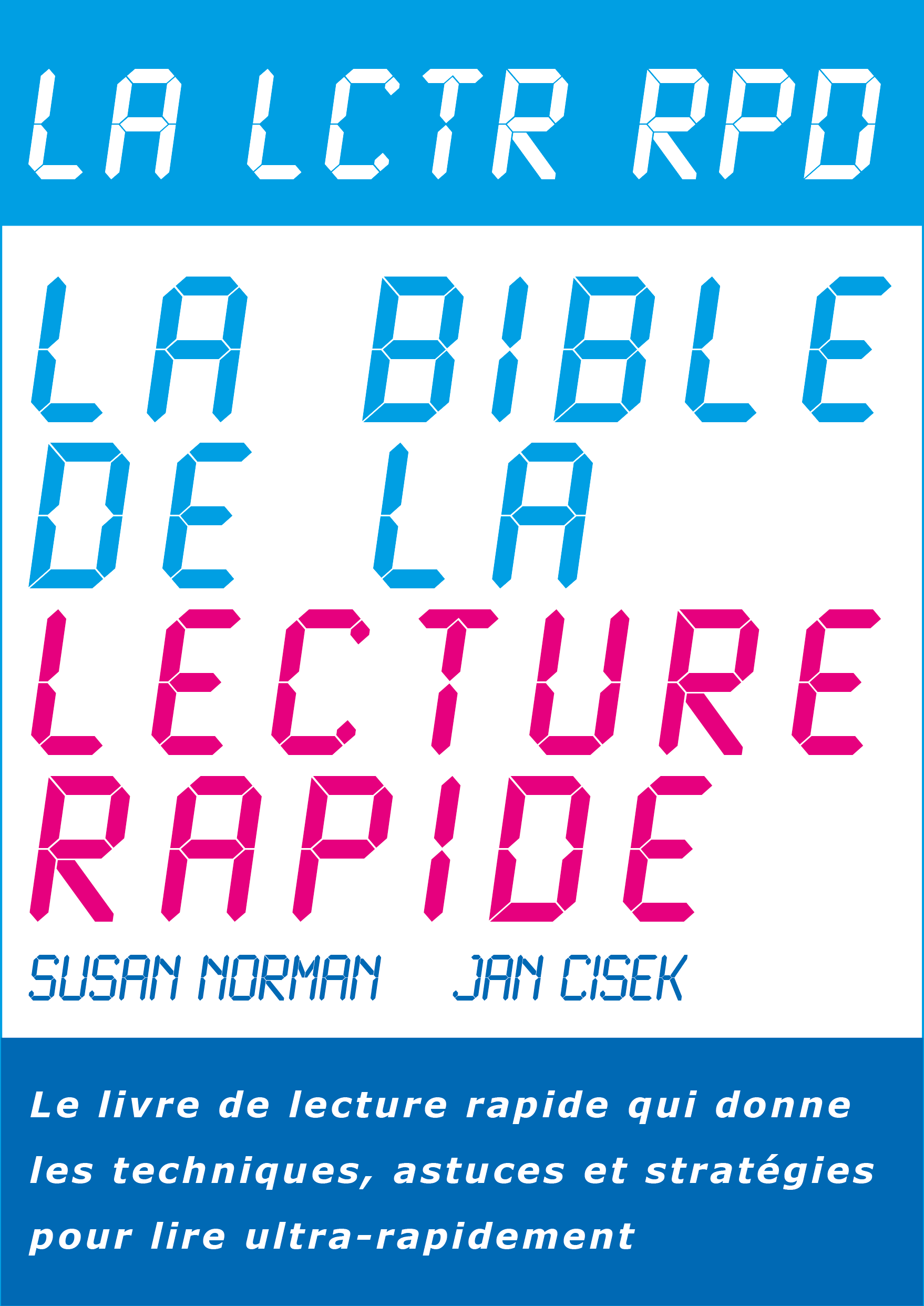 French translation of The Speed Reading Bible is now available on Kindle – La Bible de la Lecture Rapide. Le livre de lecture rapide qui donne les techniques, astuces et stratégies pour lire ultra-rapidement
French translation of The Speed Reading Bible is now available on Kindle – La Bible de la Lecture Rapide. Le livre de lecture rapide qui donne les techniques, astuces et stratégies pour lire ultra-rapidement
Spd Rdg : La lctr rpd, La Bible de la Lecture Rapide Le livre de lecture rapide qui donne les techniques, astuces et stratégies pour lire ultra-rapidement
Spd. Rdng. – La bible de la lecture rapide qui donne des techniques, astuces et stratégies pour lire ultra rapidement de Susan Norman et Jan Cisek
La Bible de la lecture rapide : des connaissances faciles de lecture rapide avec des résultats prouvés que vous pouvez appliquer immédiatement sur tous matériels de lecture (livres, rapports, journaux, manuels, textes en ligne, e-livres, etc…) pour que vous puissiez lire plus, plus rapidement, plus efficacement, que vous soyez un professionnel, un entrepreneur, un étudiant ou un professeur, un tuteur à domicile, ou simplement intéressé par votre propre apprentissage et développement personnel, dans n’importe quel domaine (y compris les affaires, la médecine, le droit, l’informatique, le théâtre et les langues). Cette méthode vous montre, entre autre, comment utiliser vos yeux avec plus d’efficacité, vous aide à mémoriser davantage de choses, à apprendre plus intelligemment, à extraire le sens avec le minimum de données, à vous concentrer sur votre sujet, à identifier les points forts d’information dont vous avez besoin, et en appliquant et pratiquant l’ensemble, en vous permettant de gagner du temps et d’économiser de l’argent afin de remporter plus de succès dans les affaires et dans la vie.
Read the sample of French translation of The Speed Reading Bible La Bible de la Lecture Rapide. Le livre de lecture rapide qui donne les techniques, astuces et stratégies pour lire ultra-rapidement
To boost your memory make a fist
Fist clenching can boost your memory, suggests a new study on memory. It works because clenching your fist can change the way your brain functions by increase activity in your brain on the opposite side (so if you clench your right fist, activity in the left brain hemisphere increases). If you’re right-handed, the left side of your brain encodes information while the right side helps you retrieve memories, while the opposite is true for left-handed people. This is how to utilise this memory aid: if you’re right-handed you would make a fist with your right hand when you want to remember something, ie a name, fact or number and when you need to recall it, clench your left fist. Other ways to boost memory include: exercise, vitamin B12, animal-based omega-3 fats, proper sleep, and optimising your vitamin D levels and avoiding sugar which can damage your memory and learning.
Productivity tools: Liquid4 – for finding key info quickly and effectively
Liquid4 is a very powerful Mac tool for research, study, referencing and more. It speeds up finding information and converting date: it helps you to do something with any text selected. It’s very easy to use. It’s perfect for students, business people and anyone interested in personal development. It’s a revolutionary processing tool that will help you get information and answers fast and with less effort. FREE version available.
Just a few neat functions: 1) the convert menu deals with currency, temperature, area, speed and more 2) the copy section’s citation will produce a Harvard reference-ready structure complete with the date 3) translation to more than 30 languages is available in the paid version 4) share function puts any selected text into a Facebook post, tweet or into an email, etc.
Summarising pays off
Nick D’Aloisio (London, UK) sold his mobile app (summly) for undisclosed sum of money to Yahoo. The app ‘summaries’ articles for quick reading. The schoolboy will work full-time for Yahoo and do A-levels in the evening (read more about the study biorhythms of teenagers) To sum up, summarising made him a millioner. Read more about the value of summaries
Don’t make teenagers read too early
Too early in the morning, that is. Research has shown that the teenage brain doesn’t wake up till 9-10am (tell us something we don’t know!) – and finally there’s a school in the UK which is hoping that exam results will improve since they decided to start a bit later. The UCL Academy in London starts at 10am and school’s not out till 5.30, but already they’re getting positive feedback from their pupils, and attendance and punctuality are excellent (according to the head). They are being supported (and closely monitored) by researchers at University College, London. Apparently the teenage ‘time-shift’ lasts till about the age of 21, but till then, they’re likely to be able to concentrate better, read better, learn better and get better exam results if they’re allowed to get that bit of extra sleep in the morning.
Kindles and other ebook readers have been included in the UK nation’s official shopping basket
Kindles and other ebook readers have been included in the UK nation’s official shopping basket for the first time, which is compiled by the Office for National Statistics. The ONS report said: “E-books represent a significant and growing market, with recent increases in the number of people reading books digitally.”
People who read make more money.
Grupo Cometa (a car and motocycle dealer, Cáceres, Brazil) pays its employees for reading books. The company developed a reading programme to help employees to enhance their skills and knowledge. To encourage employees to read books the company pays them an extra one month salary at the end of the year. The main purpose of the programme is to boost professional development with books on relations, management and the company’s operations. The programme is voluntary but 80% of 1350 employees who work in 15 shops already joined it. “Some employees made comments that since they started reading, their skills improved, as well as the relations at home, and some even started to study again.” said in “Uol Economia” CEO of the Grupo Cometa, Cristinei Melo.
The World Book Day – 7 March 2013
How are you celebrating the World Book Day today?
I’ve download a few books and will spend 20 minute speed reading them. Just got Who Owns The Future by Jaron Lanier who coined the term ‘virtual reality’. Although the word ‘virtual’ was originally coined by John Duns Scotus in the 13th century (to denote God) who develop a concentration technique for reading sometimes called ‘the duns cap’. Watch an interview with Jaron Lanier talking about the future of internet and why we should be paid for walking down the street.
German translation of the Speed Reading Bible is now available on Kindle: SchnlLsn – die Schnelllesebibel: Das Buch ds schnlln Lsns – Schnelllesebuch mit 37 Techniken, Tipps und Strategien für ultraschnelles Lesen (Speed Reading) (SchnelLesen Speed Reading Schneller lesen)
German translation of the Speed Reading Bible is now available on Kindle
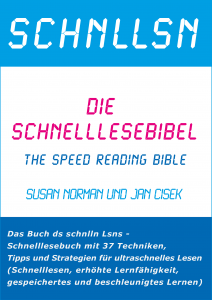
die Schnelllesebibel: Das Buch ds schnlln Lsns – Schnelllesebuch mit 37 Techniken, Tipps und Strategien für ultraschnelles Lesen (Speed Reading) (SchnelLesen Speed Reading Schneller lesen)
German translation of the Speed Reading Bible is now available on Kindle: SchnlLsn – die Schnelllesebibel: Das Buch ds schnlln Lsns – Schnelllesebuch mit 37 Techniken, Tipps und Strategien für ultraschnelles Lesen (Speed Reading) (SchnelLesen Speed Reading Schneller lesen)
Die Schnelllesebibel : die leichte Kunst des Schnelllesens erprobt und erwiesen für Sie zur sofortigen Anwendung jedweden Lesematerials (Bücher, Berichte, Zeitschriften, Anleitungen, Leitfäden, Lehrbücher, online-Texte, E-Books etc.), so dass Sie mehr und schneller und effektiver lesen können, ob Sie als Berufstätiger oder als Geschäftsperson, Unternehmer, Student, Lehrer oder Privattutor tätig sind oder Ihnen einfach an Ihrer eigenen Lernverbesserung und Ihrer persönlichen Entwicklung gelegen ist (einschließlich Business, Medizin, Jura, IT, Schauspielkunst/Theater und Fremdsprachen). Wir zeigen Ihnen u.a., wie Sie Ihre Augen wirksamer nutzen können, sich an mehr erinnern, Ihr Lernvermögen abrufen und den Sinngehalt eines Textes mit einem Minimum an Aufwand erfassen können, sich auf die Absicht Ihres Lesens fokussieren, die wichtigsten Punkte (Hot Spots) der benötigten Information finden und das alles in die Praxis umsetzen können. Das Endresultat wird so aussehen : Sie werden mehr Zeit für sich haben und dabei Geld sparen, wobei Sie gleichzeitig erfolgreicher im Beruf/Business und Ihrem Privatleben werden.
How to think like Sherlock Holmes?
What can we learn from Sherlock Holmes in terms of speed reading and reading in general? Reading is just one part of the learning process ie getting information in and then thinking about that information makes it ours and useful. But having the right ‘speed reading’ mindset before approaching any written material will also help to get better quality of information (knowing what to look at and what to overlook – ie the previewing technique). Sherlock Holmes was a perfect example of a lifelong learner following his particular type of scientific method. Sherlock Holmes would approach his cases with a specific mindset and a goal (similar to speed reading SMART purpose). Constant feedback loop was also essential to Holmes learnings, tells Maria Konnikova, author of a new book Mastermind: How To Think Like Sherlock Holmes. Watch her talking about how to think like Sherlock Holmes.
The Power of Collaborative Learning
John Seely Brown is an innovation expert shares surprising and counterintuitive insights, what surfers can teach CEOs about collaborative learning in a clip called “Accelerating the pace of collaborative learning.” Key points: 1) Create a learning community to study best practices; 2) Self-cretique, compete internally, and learn together; 3) Study adjacencies, repurpose innovation.
Italian translation of The Speed Reading Bible is now available on Kindle: Lttra Vlce – La Bibbia della Lettura Veloce: Il Libro della Lettura Veloce con 37 Tecniche e Strategie per la Lettura Super Rapida (Lettura Rapida, Lettura Veloce)
Italian translation of The Speed Reading Bible is now available on Kindle
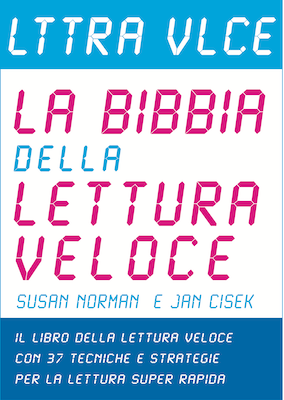
La Bibbia della Lettura Veloce Il Libro della Lettura Veloce con 37 Tecniche e Strategie per la Lettura Super Rapida (Lettura Rapida, Lettura Veloce)
Italian translation of The Speed Reading Bible is now available on Kindle: Lttra Vlce – La Bibbia della Lettura Veloce: Il Libro della Lettura Veloce con 37 Tecniche e Strategie per la Lettura Super Rapida (Lettura Rapida, Lettura Veloce)
La Bibbia della Lettura Veloce: facili abilità di lettura veloce con risultati comprovati da applicare immediatamente a qualsiasi tipo di materiale di lettura (libri, relazioni, riviste professionali, manuali, libri di testo, testi online, ebook, etc) perché tu possa leggere molto, molto più rapidamente, più efficacemente, sia che tu sia un professionista, un imprenditore, uno studente o un insegnante, un educatore in casa o semplicemente interessato nella tua formazione e nel tuo sviluppo personale, in qualsiasi campo (incluso quello imprenditoriale, medico, legale, informatico, recitazione e le lingue straniere), mostrandoti, tra l’altro, come usare gli occhi con maggiore efficacia, ricordare di più, accedere alla tua intelligenza di apprendimento, trarre il significato da un minimo di contenuto, concentrarti sul tuo obbiettivo, trovare i punti caldi delle informazioni necessarie e metterle tutte in pratica, con il risultato di risparmiare tempo e denaro mentre ottieni maggiori risultati sia nel lavoro che nella vita.
Read the sample of Lttra Vlce – La Bibbia della Lettura Veloce: Il Libro della Lettura Veloce con 37 Tecniche e Strategie per la Lettura Super Rapida (Lettura Rapida, Lettura Veloce)

